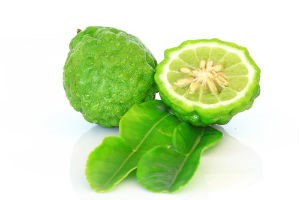
Palmarosa Oil (Cymbopogon martini)
Cymbopogon martinii is a species of grass in the genus Cymbopogon (lemongrasses) native to India and Indochina, but widely cultivated in many places for its aromatic oil. It is best known by the common name palmarosa (palm rose) as it smells sweet and rose-like. Other common names include Indian geranium, gingergrass, rosha, and rosha grass.
Origin of Palmarosa Oil
It is a wild growing, herbaceous green and straw-colored grass, with long slender stems, terminal flowering tops and fragrant grassy leaves. It is harvested before the flowers appear and the highest yield is obtained when the grass is fully dried – about one week after it has been cut.
There are two varieties of grass from which the oil can be extracted – motia and sofia. We find the sofia chemotype to be far more active and pleasant smelling – and for this reason the oil sold by us is from this chemotype.
Extraction of this essential oil is done by steam distillation of dried grass which is harvested before flowering. The chief constituents of this oil are geraniol, geranyl acetate, dipentene, linalool, limonene, and myrcene. This oil smells like rose oil, which is how it got the name, palma rosa.
It is often used as an ingredient of soaps, perfumes and cosmetics, and is also used in the flavoring of tobacco.

Composition of Palmarosa Oil
The main chemical components of palmarosa oil are myrcene, linalool, geraniol, geranyl acetate, dipentene and limonene.
In general terms, Palmarosa Essential Oil contains approximately 70-80% monoterpenes, 10-15% esters and around 5% aldehydes. It does not contain the abundance of citral (aldehyde) that Lemongrass Essential Oil and Citronella Essential Oil possesses.
Palmarosa oil is an antifungal that fights against Aspergillus niger (commonly known as black mold), Chaetomium globosum (also known as moldy soil), and Penicillium funiculosum, which is a plant pathogen.
The essential oil of this plant, which contains the chemical compound geraniol, is valued for its scent and for traditional medicinal and household uses. Palmarosa oil has been shown to be an effective insect repellent when applied to stored grain and beans, an antihelmintic against nematodes, and an antifungal and mosquito repellent.

Benefits of Using Palmarosa
Palmarosa oil calms the mind, yet has an uplifting effect, while clearing muddled thinking. It is used to counter physical and nervous exhaustion, stress-related problems and nervousness.
It is most useful during convalescence and cools the body of fever, while aiding the digestive system, helping to clear intestinal infection, digestive atonia and anorexia nervosa. It is effective in relieving sore, stiff muscles.
Palmarosa oil moisturizes the skin, while balancing the hydration levels and stimulating cell regeneration. It balances production of sebum, to keep the skin supple and elastic and is valuable for use with acne, dermatitis, preventing scarring, rejuvenating and regenerating the skin, as well as fighting minor skin infections, sore tired feet and athlete’s foot.

Palmarosa Essential Oil Uses
Sinusitis & Excess Mucus: anti-inflammatory effects reduce inflammation caused by infection and irritation. Mucolytic benefits thin mucus and help clear membranes.
Cystitis & Urinary Tract Infection: antibiotic or antimicrobial effects reduce infection and anti-inflammatory benefits to reduce inflammation and increase water and toxin removal.
Gastrointestinal Disorders: it assists in improving intestinal flow and nourishes intestinal flora. It also helps to thin and remove mucus buildup that happens in the intestines with inflammatory foods. Its carminative benefits calm the digestive tract and assist in the expulsion of gas.
Wounds & Scarring: through cytophylactic action it assists in wound healing and tissue regrowth.
Acne: through antiseborrheic actions it helps to reduce oil production of the skin cells. Antibacterial actions reduce skin infection. Anti-inflammatory benefits reduce redness and irritation of skin.
Fungal Infection: its antifungal and antimicrobial benefits reduce fungal growth on the skin and throughout the body.
Restlessness & General Fatigue: Palmarosa has calmative effects that assist in calming the mind and nervous system and allowing the body to relax and heal. Its cephalic actions help to clear the mind and assist in focus.
Muscular Aches: through mild analgesic properties it assists in relieving muscular pain associated with overuse or injury.
Stress & Irritability: as a gentle sedative, relaxant and uplifting oil it helps to counteract the effects of stress on the body and to bring balance to moods.
Insect Bites & Stings: antibacterial and anti-inflammatory benefits reduce the pain and swelling associated with insect bites or stings.

How to Use Palmarosa Oil
Burners & Vaporizers: In vapor therapy, palmarosa oil can help during convalescence. It relieves fatigue, nervousness, exhaustion and stress, while having an uplifting effect on the mind and clearing muddled thoughts.
Blended massage oil or in the bath: In a blended massage oil or diluted in the bath, palmarosa oil can be used on convalescent patients, to fight exhaustion, fatigue, nervousness, stress, bolstering the digestive system, while boosting the health of the skin.
Wash, lotions and creams and used neat (undiluted): Palmarosa oil can help clear up infections and prevent scarring when added to the water used to wash the wound. When included in creams and lotions, it has a moisturizing and hydrating effect on the skin, which is great to fight wrinkles. It also balances the natural secretion of sebum, which keeps the skin supple and elastic.
On cellular level, it helps with the formation of new tissue and for that reason is great for rejuvenating and regenerating the skin. It is most useful when fighting a dry skin and treat skin infections. Some people find that they have great results when applying palmarosa oil neat or undiluted to the affected area of athlete’s foot – but please keep in mind that we do not advocate the use of neat essential oils on the skin.
Precautions
Palmarosa oil has no known contra indications and is considered a non-toxic, non-irritant and non-sensitizing essential oil.




